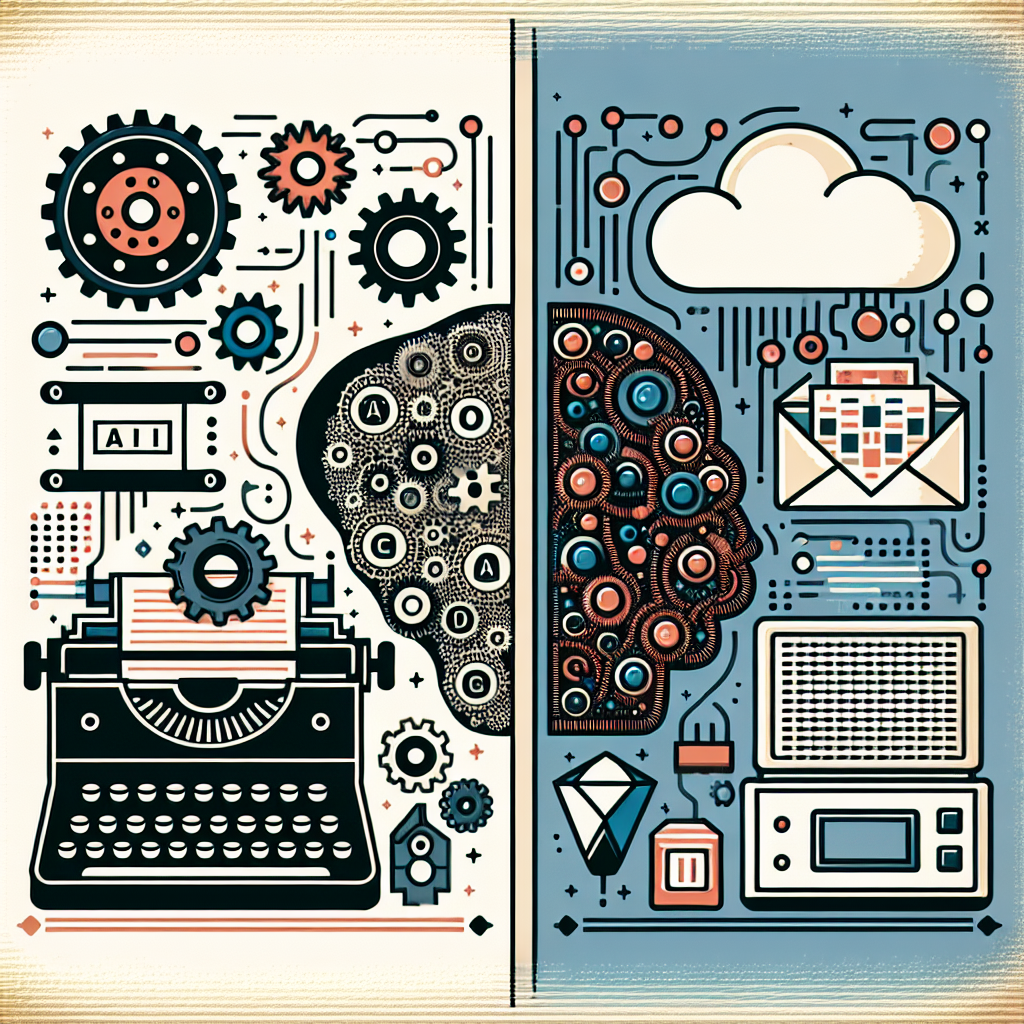In recent years, Artificial Intelligence (AI) has become increasingly prevalent in a variety of industries, revolutionizing the way we work and interact with technology. One of the key developments in this space has been the emergence of AI platforms, which offer a range of capabilities that go beyond what traditional software can provide. In this article, we will explore the key differences between AI platforms and traditional software, and how businesses can benefit from leveraging these advanced technologies.
AI Platforms vs. Traditional Software: What’s the Difference?
To understand the difference between AI platforms and traditional software, it’s important to first define what each of these terms means. Traditional software refers to programs and applications that are designed to perform specific tasks or functions, such as word processing, spreadsheet management, or email communication. These software programs are typically designed to follow pre-defined rules and algorithms, and are not capable of learning or adapting on their own.
On the other hand, AI platforms are built on top of advanced machine learning algorithms that enable them to learn from data, make predictions, and improve their performance over time. These platforms are designed to analyze large amounts of data, identify patterns and trends, and make decisions based on this information. AI platforms can be used to automate tasks, improve decision-making processes, and enable businesses to gain valuable insights from their data.
One of the key differences between AI platforms and traditional software is the level of intelligence and autonomy that they possess. While traditional software is limited by the rules and algorithms that are programmed into it, AI platforms have the ability to learn from data and make decisions on their own. This makes AI platforms much more flexible and adaptable to changing circumstances, and enables businesses to take advantage of the latest advancements in machine learning and artificial intelligence.
Another key difference between AI platforms and traditional software is the level of customization and personalization that they offer. AI platforms can be tailored to meet the specific needs of a business, and can be trained to perform specific tasks or analyze specific types of data. This level of customization is not typically possible with traditional software, which is often limited to a set of pre-defined functions and capabilities.
Benefits of AI Platforms
There are several key benefits to using AI platforms over traditional software. One of the main advantages is the ability to automate tasks and processes that would be time-consuming or difficult for humans to perform. AI platforms can analyze large amounts of data in a fraction of the time it would take a human to do so, enabling businesses to make faster and more informed decisions.
AI platforms also offer the ability to make predictions and forecasts based on historical data, enabling businesses to anticipate trends and plan for the future. This can be particularly valuable in industries such as finance, marketing, and healthcare, where accurate predictions can lead to significant cost savings and competitive advantages.
Additionally, AI platforms can help businesses gain valuable insights from their data that would be difficult or impossible to uncover using traditional software. By analyzing patterns and trends in data, AI platforms can identify opportunities for growth, detect anomalies or outliers, and optimize processes for improved efficiency and performance.
FAQs
Q: How are AI platforms different from traditional software?
A: AI platforms are built on advanced machine learning algorithms that enable them to learn from data, make predictions, and improve their performance over time. Traditional software, on the other hand, is limited by the rules and algorithms that are programmed into it, and is not capable of learning or adapting on its own.
Q: What are the benefits of using AI platforms?
A: AI platforms offer a range of benefits, including the ability to automate tasks, make predictions and forecasts, and gain valuable insights from data. AI platforms can help businesses improve decision-making processes, optimize operations, and gain a competitive advantage in their industry.
Q: How can businesses leverage AI platforms in their operations?
A: Businesses can leverage AI platforms in a variety of ways, including automating repetitive tasks, making data-driven decisions, and gaining insights from their data. By incorporating AI platforms into their operations, businesses can improve efficiency, reduce costs, and drive innovation.
In conclusion, AI platforms offer a range of benefits over traditional software, including the ability to automate tasks, make predictions, and gain valuable insights from data. By leveraging the power of AI platforms, businesses can improve decision-making processes, optimize operations, and gain a competitive advantage in their industry. As AI continues to evolve and advance, it’s clear that AI platforms will play an increasingly important role in shaping the future of technology and business.

